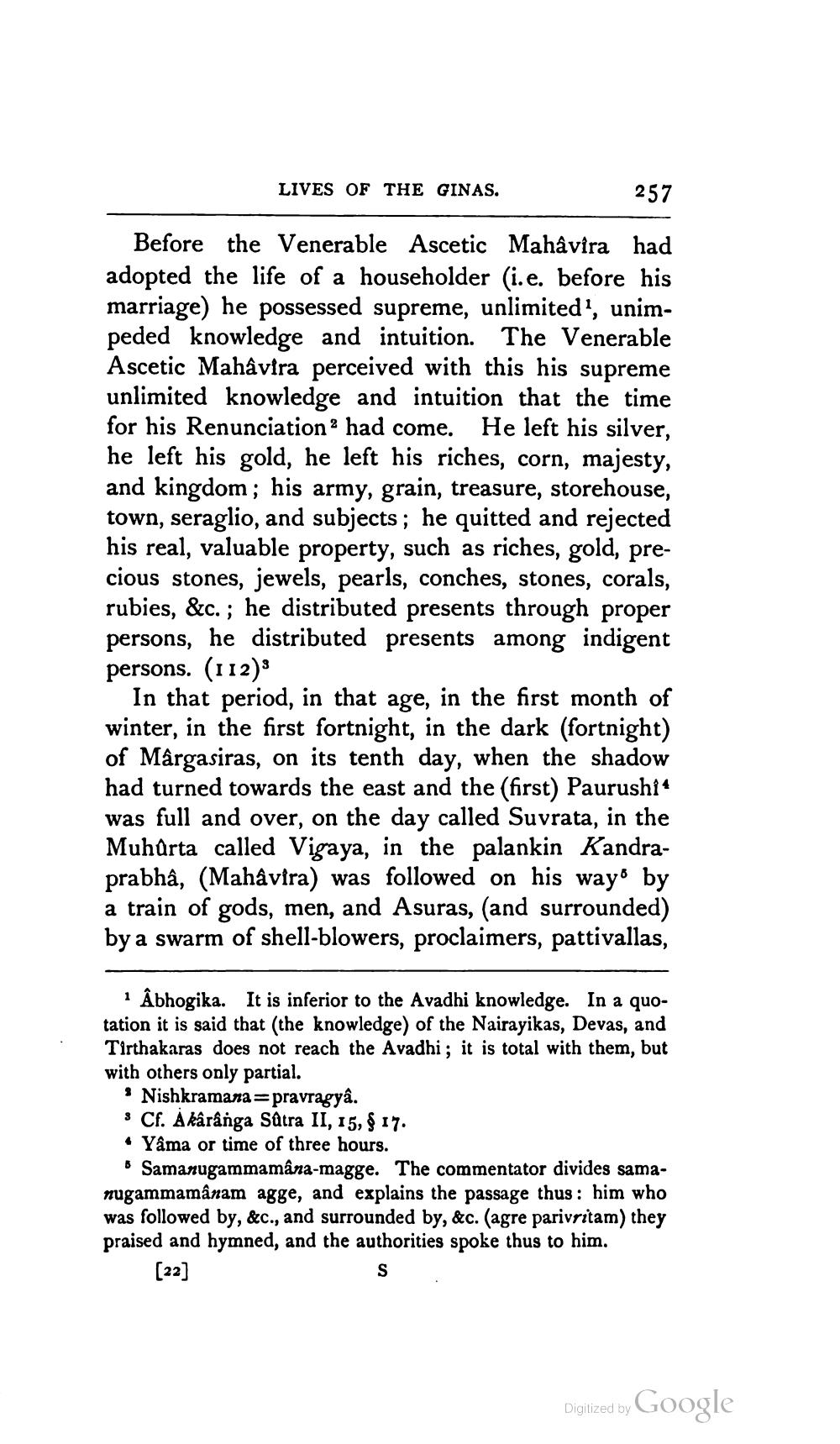________________
LIVES OF THE GINAS.
257
Before the Venerable Ascetic Mahâvira had adopted the life of a householder (i.e. before his marriage) he possessed supreme, unlimited", unimpeded knowledge and intuition. The Venerable Ascetic Mahavira perceived with this his supreme unlimited knowledge and intuition that the time for his Renunciation had come. He left his silver, he left his gold, he left his riches, corn, majesty, and kingdom ; his army, grain, treasure, storehouse, town, seraglio, and subjects; he quitted and rejected his real, valuable property, such as riches, gold, precious stones, jewels, pearls, conches, stones, corals, rubies, &c.; he distributed presents through proper persons, he distributed presents among indigent persons. (112)
In that period, in that age, in the first month of winter, in the first fortnight, in the dark (fortnight) of Mârgasiras, on its tenth day, when the shadow had turned towards the east and the (first) Paurushio was full and over, on the day called Suvrata, in the Muhůrta called Vigaya, in the palankin Kandraprabhâ, (Mahavira) was followed on his way by a train of gods, men, and Asuras, (and surrounded) by a swarm of shell-blowers, proclaimers, pattivallas,
· Âbhogika. It is inferior to the Avadhi knowledge. In a quotation it is said that the knowledge) of the Nairayikas, Devas, and Tirthakaras does not reach the Avadhi; it is total with them, but with others only partial.
• Nishkramana=pravragya. 3 Cf. A kârânga Sätra II, 15, $ 17. • Yama or time of three hours.
* Samanugammamâna-magge. The commentator divides samanugammamânam agge, and explains the passage thus : him who was followed by, &c., and surrounded by, &c. (agre parivritam) they praised and hymned, and the authorities spoke thus to him.
[22]
Digitized by Google




